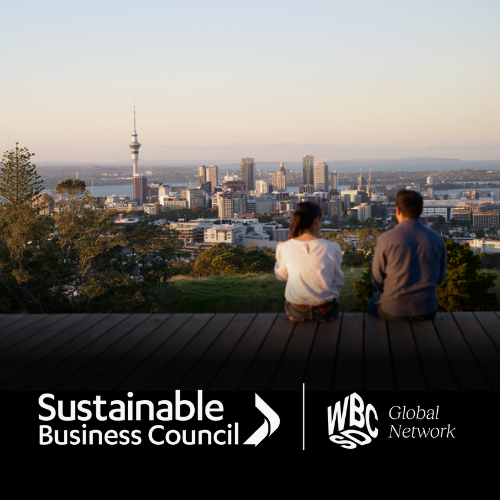In our next update from Glasgow, New Zealand journalist Rod Oram speaks with David Benattar, The Warehouse Group’s Chief Sustainability Officer about his insights and experience on the ground at COP26, and how that translates to the role business plays in climate action.
Transcript
Kia ora tatou. It’s a great pleasure to be here with David from The Warehouse and the Sustainable Business Council and we’ve just been swapping notes about what we’ve been picking up at COP. So David, what has been some of, or one of, the big really exciting sort of mind shifts you’ve seen and experienced these ten days ago?
David: Hi everyone, hi Rod, there’s a few things going on because first the conversation is so intense and covers so many aspects of your position but really it’s trying to even digest it all and I think one of the messages within the complexity of the transition and how it would impact every aspect of society. For example on the second day I attended a camera on women’s rights and with production rights as one of the dimensions that needs to be incorporated into the NDCs. I never realized that this dimension of reproduction rights had to be really consistent on the game code and that’s just one example. Another realization is that business is going fast. Today at COP26, business is dropping the action and what you see is that you have a member of coalitions that are forming a bi-industry sector and who are coming up with strong commitments and vicious commitments to decarbonize their entire industry and go faster than what the government is asking for. What it has created is avoided by government also with respect to provide regulation that will provide level sets that will then allow government, assorted industry, because the other conditions, so that’s catch-22 in industry machines and government policies that is required to accelerate the deployment of the climate transition.
Rod: And those are very powerful dynamics indeed, but then when we start thinking about our typically smaller companies in New Zealand, what would be your message for them about their small scale and but still how they can play a role in this.
David: Yeah so I would frame it under the term of opportunities. I think all SMEs whether in New Zealand or other markets are looking for ways to sustain their business and develop their activities and in fact if they see sustainability as a competitive age they can clearly take advantage of what’s happening in the markets. That’s the positive. The negative is the reality, that it’s complicated. It is not easy to define exactly your materiality and your area of opportunities, so I would tell them taking one step at a time – start with understanding where you can have the most impact where you are the best equipped to have an impact in the market and use it to engage with your customers because SMEs, many of them are part of the supply chain that powers global business. So whether you’re in New Zealand or the markets that have a real role to play and hopefully big business can partner with small business to like celebrate the production of change.
Rod: Yes thank you, it’d be great to see that partnership really. I guess it was a real head of speed in New Zealand. Well thanks and I look forward to just sustaining chats while back home.

